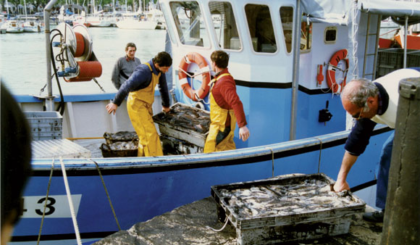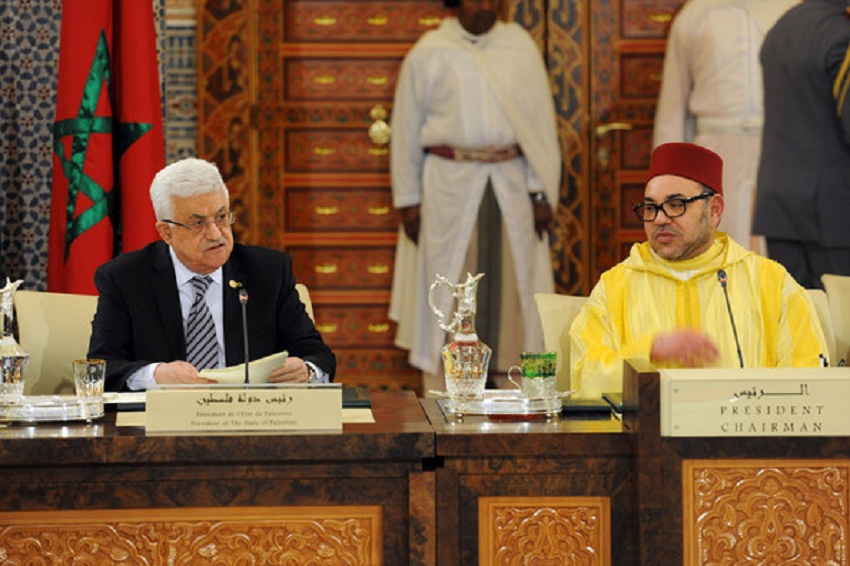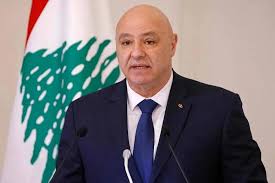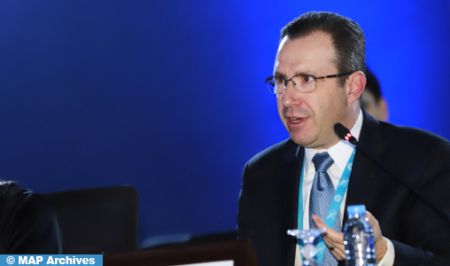 The audit report on the Morocco-EU fisheries accord, commissioned by the European Commission, concluded that the agreement has worked satisfactorily and that 75% of its socio-economic impacts benefit the Moroccan southern regions, and recommended the renewal of this agreement, which will expire in July 2018 as it stands as an instrument of in-depth cooperation with the North African Kingdom.
The audit report on the Morocco-EU fisheries accord, commissioned by the European Commission, concluded that the agreement has worked satisfactorily and that 75% of its socio-economic impacts benefit the Moroccan southern regions, and recommended the renewal of this agreement, which will expire in July 2018 as it stands as an instrument of in-depth cooperation with the North African Kingdom.
The European Union voiced appreciation for the conclusions of the report, which highlight the socio-economic benefits of the fisheries agreement with Morocco.
In this “retrospective and prospective evaluation report of the protocol to the partnership agreement in the field of sustainable fisheries between the European Union and the Kingdom of Morocco”, which has just been submitted to the Council of the EU and in the European Parliament, the EU considers that the agreement has proved “effective in achieving its sustainable exploitation objective”, states the report.
The report, drafted by the maritime affairs and fisheries department of the European Commission, notes that the EU “welcomes the scientific cooperation between the two parties, reflected in the joint annual meetings, which allowed the exchange of available data and led to shared diagnoses”.
According to the report, the fisheries agreement has also achieved its objective in terms of supporting sustainable development of the sector.
This objective has been achieved thanks to the contribution of sectoral support to the implementation of Morocco’s Halieutis strategy projects and the boarding of 200 Moroccan sailors aboard European fishing vessels.
The document also notes that the implementation of the sectoral support of the fisheries agreement is proceeding at a very satisfactory pace, recalling that the regions of Dakhla-Oued Eddahab and Laayoune-Boujour-Sakia El Hamra in the Moroccan Sahara account for 66% of the total amount of nearly €37 million earmarked for sectoral support.
According to the report, the first estimates of the socio-economic benefits of sectoral support already show the creation of 180 direct jobs and the improvement of the working conditions of about 59,000 people employed in the sector or in its related activities. In this vein, the document outlined that 75% of the socio-economic profits benefit these Sahara regions.
As regards the economic benefits derived by the EU, the report stated that the EU investments generate a good return, as every Euro invested generally generates 2.78 euros of total value added, both direct and indirect, for the European fisheries sector.
It is worth recalling that the December 2010 evaluation report estimated that one euro invested by the EU generated only 0.65 Euro in total value added.
The 2017 European Assessment Report further notes that the Morocco-EU fisheries agreement is important to EU needs in that it complements a string of agreements covering the range of small pelagic species in Western Africa and the existing tuna-related agreements, while meeting the fishing needs of the operators.
The document also stresses the coherence of the agreement with other EU initiatives in that it ensures complementarity between sectoral support and the program meant to ensure the success of the Advanced Status with Morocco.
The report recommended the renewal of the fisheries accord when it expires in July 2018, as “an instrument of in-depth co-operation with Morocco, which is strongly involved in South-South cooperation” and to enable it “to complete its actions in favor of the sustainability of stocks within regional fisheries organizations”.
The current fisheries agreement between Morocco and the EU entered into force in 2014 for a 4-year period. It gives European vessels access to the Kingdom’s Atlantic fishing zone in exchange for a yearly financial contribution of €30 million granted by the EU in addition to €10 million as ship-owners contribution.
The first fisheries agreement between Morocco and the EU dates back to 1988.
This new positive EU report deals a blow to the Polisario and its mentor Algeria, which have spent millions on lobbying to harm the Morocco-EU fisheries accord, claiming the European vessels are illegally operating in the Sahara waters. Once again, their maneuvers are undermined by the report drafted not by Morocco but by the European Union.



